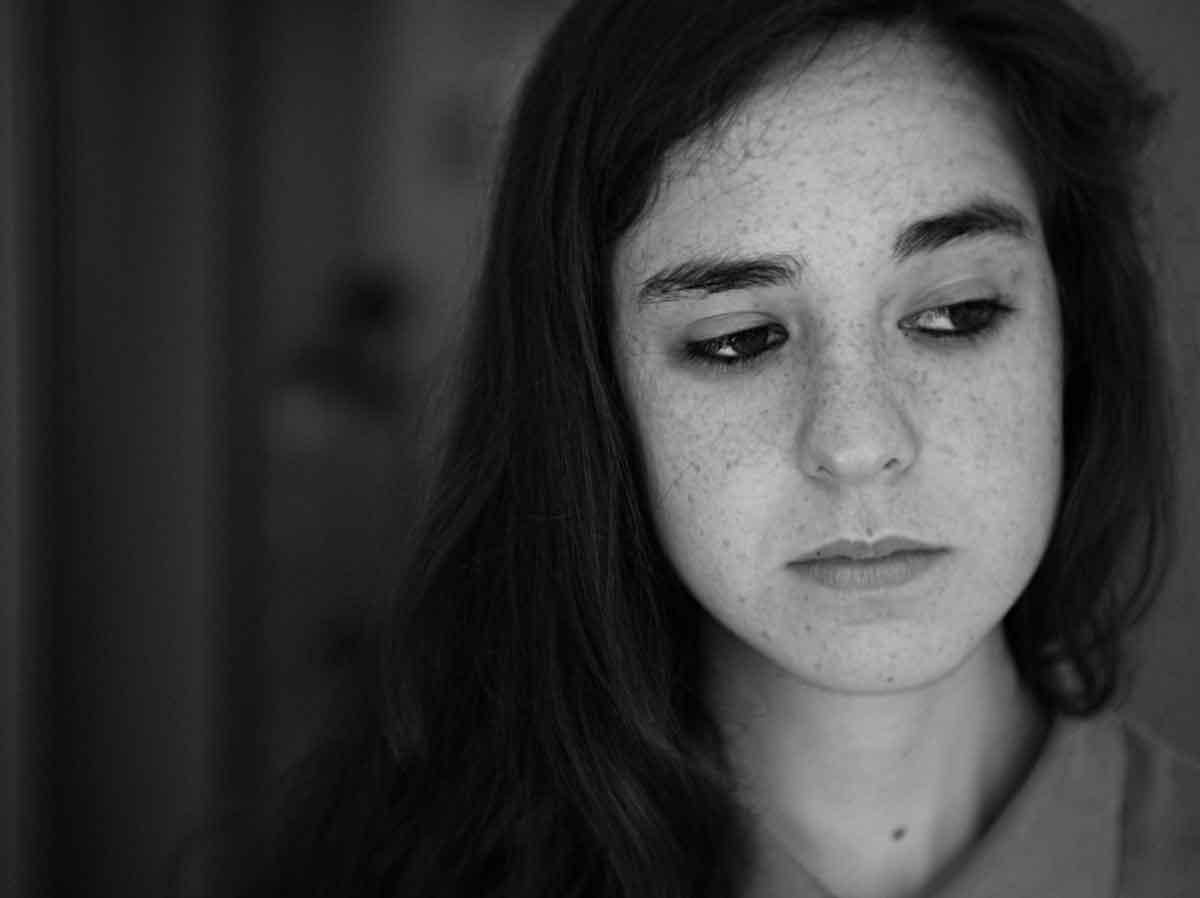Our brain’s typical response to stress is designed to alert us to it and take steps to avoid it. For those who struggle with anxiety however, stress isn’t just an isolated occurrence, and this constant state of unease can have profound impacts on our health.
For over a year the COVID-19 pandemic and its far-reaching impacts have bombarded our brains with new sources of stress and concern. It is little wonder that studies suggest that mental health issues are on the rise as a result. As regular avenues for coping are altered or limited by lockdowns and other Covid-related restrictions, many are feeling the impacts of ongoing high stress.
Anxiety, usually understood as persistent unease, worry or fear, is a common manifestation of this stress. Anxiety disorders are the most common mental health condition in the world, impacting people from all nations and backgrounds. One study showed that approximately one out of every 13 people will struggle with some form of anxiety. Anxiety disorders emerge from a complex set of factors, which can include genetics, family history, brain chemistry, personality and life experience.
Though these disorders are highly treatable, there are many people living with anxiety who have not sought treatment. This is partially due to a lack of awareness of symptoms and the long-term effects of untreated anxiety on both physical and mental health. Being able to identify symptoms of anxiety is an important first step in considering treatment and ultimately improving your quality of life.
Understanding the Symptoms of Anxiety
While most of us are quite familiar with the acute symptoms of anxiety – the pit in your stomach before a big presentation at work for example, or the sweats and shakes of doing something physically dangerous – it can be harder to identify the symptoms that happen when we are consistently experiencing anxiety. These symptoms can manifest both physically and mentally, offering clues to an internal struggle we may not always be aware of. These symptoms can include:
Chills
A lesser known but commonly felt response to anxiety is chills, a quick cooling feeling that runs through our body as our “fight or flight” response is activated. The ensuing rush of adrenaline can also result in perspiration, sending us into the uncomfortable stage of cold sweats.
Nausea and Digestive Issues
Our brains are chemically connected to our digestive systems via neurotransmitters, which means that what we are feeling also feeds into how well we are digesting. If you struggle with persistent, unexplained stomach issues including cramps, gas, nausea or vomiting, anxiety may be a factor.
Trouble Concentrating
Trouble concentrating can come in the form of racing thoughts, where it is difficult to focus on just one idea or task. You might also find yourself easily distracted by what’s going on around you and unable to keep your attention directed. Once again, the “fight or flight” response that anxiety triggers keeps us in a state of high alert, which can make it hard for our brains to remain calm and focused.
Skin Outbreaks
Our response to stress also involves our hormones, which stimulate our skin glands and hair follicles and can exacerbate outbreaks of acne, psoriasis, and eczema. If you are realising that your skin is acting up more than usual, this could be due to underlying anxiety.
Heart Palpitations
You notice that your heart is racing, or seems irregular. You might feel strangely aware of your heartbeat when you weren’t before. While this is a symptom that should be checked out by a doctor to rule out other conditions, it can also be caused by anxiety.
Regularly Defaulting to People-Pleasing
No matter how busy, stressed, or exhausted you are, you just can’t help saying “yes” to every request asked of you. While most of us feel pressure at some point or another to agree to do something we really don’t have time or energy for, if this is a defining element of your life it could be linked to deep-seated anxiety over social interactions.
Procrastination
Slow-burning anxiety can result in putting things off in an attempt to avoid what is causing you stress. If you are noticing that there are certain tasks or jobs you are continuously putting to the side, consider whether anxious feelings could be at the root.
Sleep Disturbances
People with anxiety often experience a relentless stream of thoughts at bedtime that make sleeping challenging. Whether you’re tossing and turning all night, or can’t seem to drag yourself out of bed to face the day, many sleep issues are linked to anxiety.
Insisting on Perfection
It is one thing to take pride in your work and want to give it your all, but it is another when you are borderline obsessed with weeding out any errors. Do you find yourself overthinking a lot of what you do? Do you feel worried about how other people will perceive your efforts, even when those people are usually supportive and understanding? These feelings may come from anxiety.
Needing Control
You feel a compelling desire to control your environment, perhaps including those around you, and feel deeply uncomfortable when you are unable to do so. This can be exhausting for you, but also harmful in your relationships to others. A need to control any variables in life is often a way to deal with both the nervous energy and the stress that stems from anxiety.
Shame Spirals
Triggered by almost any innocuous interaction, shame spirals send you on a miserable journey of self-doubt, criticism and loathing. This can start with something as simple as a conversation with a friend, an email from a loved one, or a casual text, but quickly turns into you replaying the interaction repeatedly in a way that casts you somehow insensitive or offensive. Shame spirals can be linked to a deep sense of social anxiety.
Feeling Irritable
Like many other symptoms, irritability is linked to the “fight or flight” response of anxiety. Underlying anxiety can put our bodies into a consistent “fight” mode, where we’re feeling annoyed or even angry by things that we wouldn’t normally. If you’re losing your temper easily, or just feeling frequently irritated, this could be connected to anxiety.
Getting Help for Anxiety
Left untreated, anxiety can cause long-term cognitive impacts, increase the risk of heart attacks and high blood pressure, and result in unwanted weight-gain and immune deficiencies. It is a serious health condition that deserves attention and care. If you think you might be dealing with anxiety, reaching out to a mental health professional is critical in beginning to determine the right kind of treatment. Anxiety treatment tends to be greatly beneficial for those living with anxiety, improving your health outcomes and reducing the stress you feel on a day-to-day basis.
Learning How to Cope at The Dawn

The Dawn Wellness Center and Rehab offers a Mental Wellness Programme designed to help our clients gain a deeper understanding of their symptoms, and learn skills to help manage their condition. The Dawn specialises in treating anxiety disorders, and offers highly personalised treatment programmes that blend modern psychotherapeutic techniques with proven wellness practices in an effective, holistic approach to managing anxiety.
Located in safe, sunny Thailand and licensed by the Thai Ministry of Health, The Dawn offers a respite from the stresses and worries of life at home. Our tranquil riverfront location is equipped with all the conveniences and comforts of home, plus a fitness centre, yoga and meditation studio, recreation area and swimming pool.
There are ways to manage your anxiety and live a less stressful, more joyful life. Call The Dawn today and learn more about our treatment options.
Related Posts
 Trauma and the Fawning Response: The Dark Side of People-Pleasing
If you feel like you are always last on your list, you may be acting in response to internalised trauma. Here’s what you should know about fawning. You have noticed...
Trauma and the Fawning Response: The Dark Side of People-Pleasing
If you feel like you are always last on your list, you may be acting in response to internalised trauma. Here’s what you should know about fawning. You have noticed...
 Finding a Way Back from Flashbacks
The power of trauma and its impact on how we remember an event can set off a long cycle of recurring and disturbing flashbacks. Understanding what they are, and how...
Finding a Way Back from Flashbacks
The power of trauma and its impact on how we remember an event can set off a long cycle of recurring and disturbing flashbacks. Understanding what they are, and how...
 5 Personal Costs of Untreated Mental Health Conditions
It’s easy to find an excuse to avoid treatment for a mental health condition, but it is far more difficult to ignore the long-term side-effects of not getting help. Living...
5 Personal Costs of Untreated Mental Health Conditions
It’s easy to find an excuse to avoid treatment for a mental health condition, but it is far more difficult to ignore the long-term side-effects of not getting help. Living...
 How Long-Term Anxiety Causes Short-Term Memory Loss
Exploring how the brain responds to stress is key in understanding how anxiety disorders can disrupt the formation of new memories. A range of coping strategies can help you channel...
How Long-Term Anxiety Causes Short-Term Memory Loss
Exploring how the brain responds to stress is key in understanding how anxiety disorders can disrupt the formation of new memories. A range of coping strategies can help you channel...





